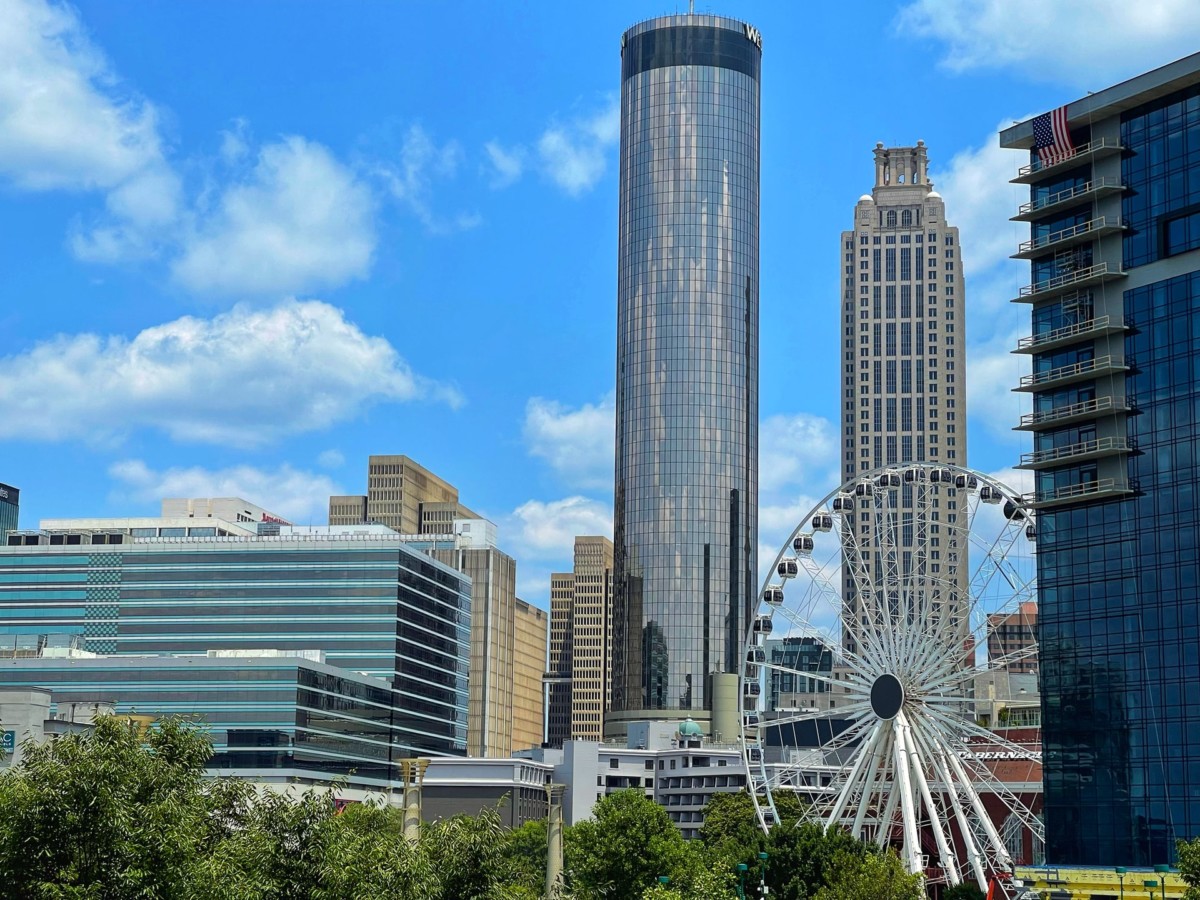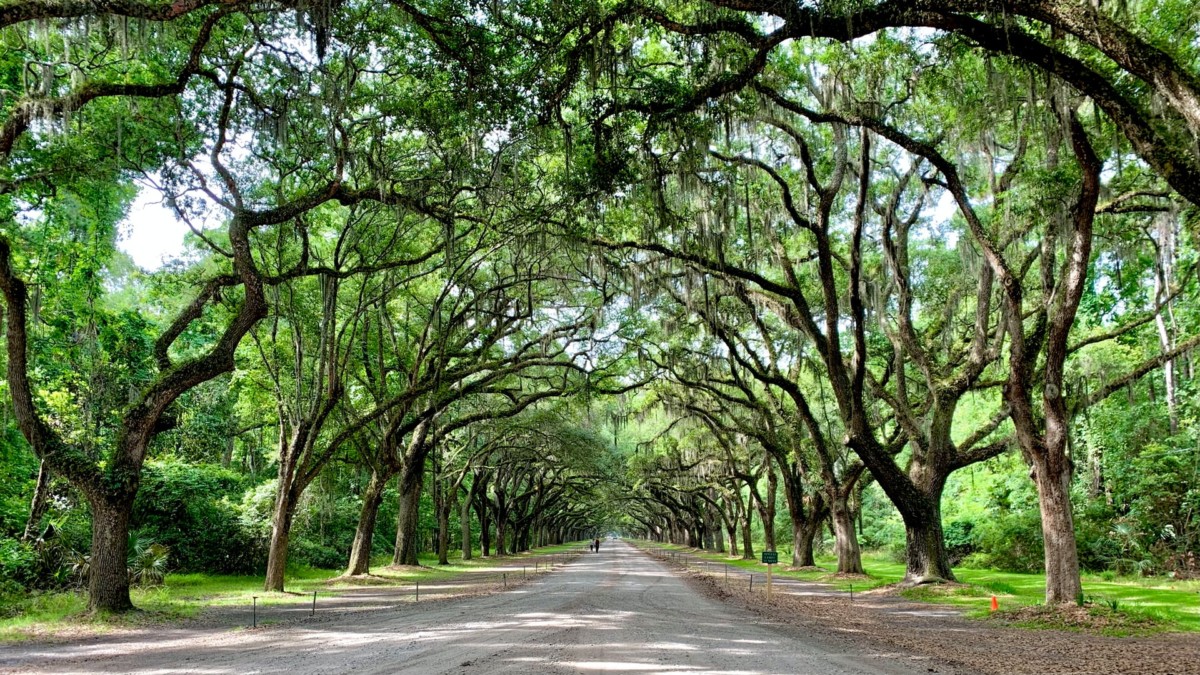10 Pros and Cons of Living in Georgia
Are you considering moving to Georgia and possibly buying a house in Atlanta or somewhere like Alpharetta? Georgia, popularly known as the Peach State, is the 24th most extensive state in terms of the landmass in the U.S. The state is densely populated and is considered the 8th most populous state in the U.S.
Georgia has unique characteristics such as an incredible landscape, celebrated sports culture, great weather, and great outdoor activities. It’s also home to some not-so-great things like humid summers, high pollen count, and lots of traffic. If you have plans to shift your life to the Georgian way of living, consider the pros and cons of living in Georgia before you do.

Pros of living in Georgia
1. Four distinct but mild seasons
Living in Atlanta or other parts of Georgia will grant you a chance to experience all four seasons. Although you’ll feel the difference in seasons, it’s not an extreme change that will affect your lifestyle. The best thing is that all these seasons seamlessly transition into one another, each paving the way for the next. Summer is always the warmest and most challenging to get through, but it offers the right opportunity to enjoy numerous watersports and other recreation activities.
2. Sports galore
The Peach State is an ideal home for sports fans, offering pro-league tournaments such as the Masters Golf Tournament located in northeast Georgia. Apart from golf, the state has many motorsports playgrounds, such as the Atlanta Motorsport Playground, where friends and families come together and celebrate their passion for driving. Many universities are also notable for their sports, like the Panthers from Georgia State University and the Georgia Bulldogs from the University of Georgia.
3. The cost of living is low
If you’re looking for a place with a lower living cost, put Georgia on your list. Georgia is ranked number 6 among the most affordable states in the U.S. The overall prices of basic needs such as housing, health services, transportation, utilities, and food are low compared to the national average. Although the cost of living in Georgia is low, it is higher in some districts such as Atlanta. You can find the most affordable Atlanta suburbs to live in even with the state’s real estate market growth and the median home sale price increasing to 21.1% YoY.
4. Incredible diverse landscape
Georgia is a natural beauty and has many beautiful landscapes where you can explore and enjoy nature. Most landscapes in this state attract tourists from outside the state and even other countries. Some famous landscapes in Georgia include;
- Margaritaville at Lanier Islands
- Six Flags Over Georgia
- Lake Winnepesaukah Amusement Park
- Chehaw Park
- Wild Animal Safari at Pine Mountain
- Tallulah Gorge State Park

5. Property taxes are low
Property taxes in Georgia are relatively level throughout the state and below the national average. Unlike most states, property taxes in Georgia tend to accommodate low-earning residents. If you live here, you won’t have to worry about high property taxes or property tax increments from year to year. However, tax pricing depends on your local area, and you’ll probably pay higher taxes in counties like Fulton. Georgia’s economy is also positively growing and is expected to make a full recovery faster than the national average.
Cons of living in Georgia
1. Summers are very hot and humid
Georgia is one of the states with the hottest summers in the U.S. The humidity in Georgia is high, and many people struggle to adapt to the new weather. Some Georgia residents often escape to beaches and mountains, while others stay indoors and opt to rely on air conditioners to cool off. Living in Georgia, you’ll need to prepare yourself for high temperatures throughout the summer. Even though the temperatures are high, you’ll learn to adapt to the new environment with time.
2. Mosquitos are practically the state’s bird
Mosquitos flourish in Georgia due to the favorable humid environment. Residents jokingly refer to mosquitos as the state bird of the peach state. Residents buy repellants or install a screened-in porch to keep the mosquitoes away. If you want to live in Georgia, be prepared to face your fair share of mosquitoes.
3. Lots and lots of traffic
Like any other state in the country, traffic in Georgia is terrible, especially Atlanta traffic. Having one of the busiest airports in the nation, with tourists coming in and out of the city, results in congestion and traffic. The best thing you can do is plan your travel plans around peak commuting times to avoid being late.

4. Seasonal allergies? Pollen here is for real
Spring in Georgia comes with pollen that seems to fall like snow and cover everything it touches. Okay, you may not see inches of pollen like you would with snow, but residents have to wash their cars every other day to prevent a build-up of pollen. The genuine concern associated with pollen is for people who suffer from seasonal allergies. If you’re one of them, check with your doctors and get the necessary medication before moving to Georgia. The best thing is that pollen only lasts a few weeks, then vanishes.
5. Lack of public transportation
Georgia lacks the efficiency of public transportation. Although the state authority has been active in putting up public transport systems throughout the state, public transport remains a challenge. In the meantime, if you intend to live in Georgia, make sure you have a car. The type of car you own does not matter because Georgia roads can accommodate all vehicles.
Pros and cons of living in Georgia: Bottom line
Becoming a Georgia resident will offer something for everyone. From the beautiful cities and landscapes to the sports and heat. Whether you’re deciding if living in Georgia is suitable for you, it’s best to consider the pros and cons of living in Georgia before you move.
Methodology
Median home sale price data was pulled from the US Housing Market resource during March 2022.
The post 10 Pros and Cons of Living in Georgia appeared first on Redfin | Real Estate Tips for Home Buying, Selling & More.
